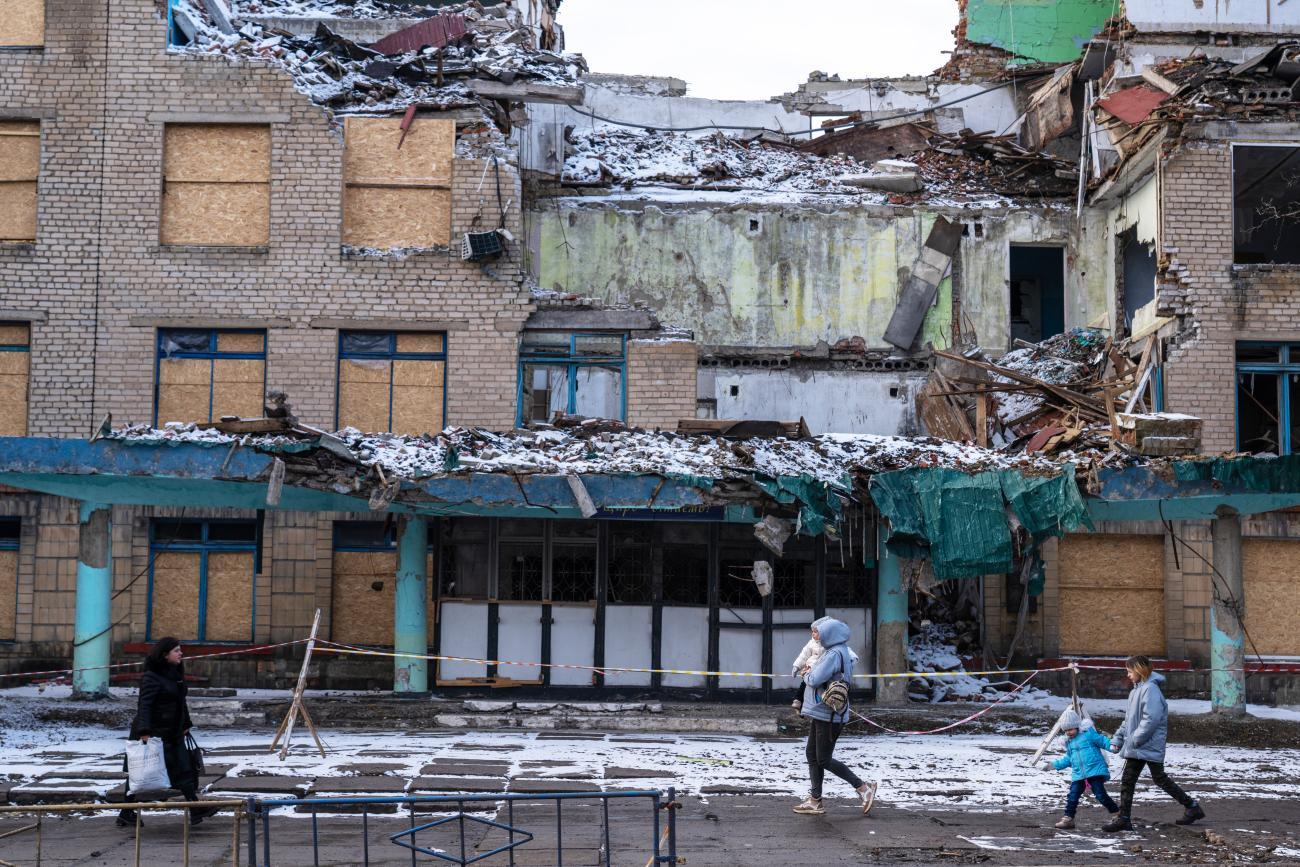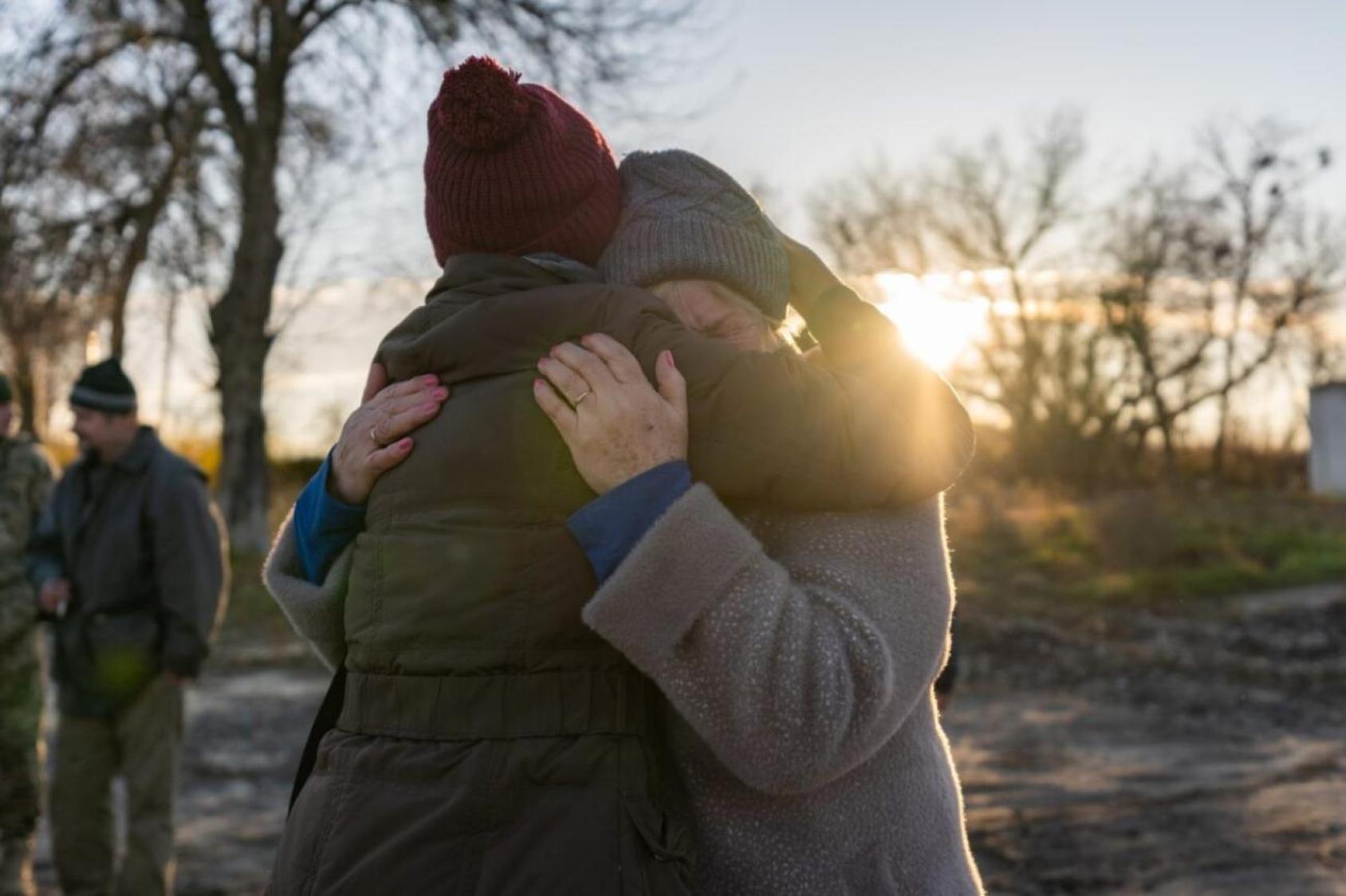From Relief to Recovery: Working Together in Ukraine

In my work with the United Nations, I've witnessed countless crises. But what's happening in Ukraine is unique. Although the war continues to ravage parts of the country – and we can see the dire situation in Kharkiv now – local communities across Ukraine are determined to support one another, not only to be able to face the most immediate challenges imposed by Russia’s invasion but also to rebuild their lives and take back what was lost. They're banding together to heal the wounds and start recovering from the devastation caused by relentless attacks and bombardments.
The determination of the people of Ukraine brings us back to a constant question that we have in our work: how do we move from emergency relief to recovery? Ukraine, with its strong people and communities, might just have the answer. Here we have had, over the past couple of years, a unique opportunity to work together in a completely new and exciting way, despite the terrible context of the war.
So, how do we know when it's time to shift gears?
Some examples, based on conversations I’ve had in the past two years, give us some indication. Last year, when I met with Governor of Mykolaiv, Vitalii Kim, he thanked the UN and other international partners for our support in humanitarian efforts, but he also told me that it was time to move on from just humanitarian aid and focus on the recover from the impact of the war. He asked for the support of the international community. Based on this, the Government, the UN and other supporters like Denmark and the United States came together to help the Mykolaiv Region and they are moving on. I had a similar conversation with the Governor of Sumy, Volodymyr Artyukh. He and his team and the communities across the Sumy Region have a clear strategy and priorities, and they needed help connecting with international actors. We helped them make those connections, and they also started their journey towards recovery. As we can see with these two examples, there are parts of Ukraine already in recovery, even though the war and the humanitarian crisis continue and deepen.

However, there are a few things to consider when deciding on the right moment. We need certain things to be in place first. Security is a major one. We're not going to rebuild schools right on the front lines, but we can help 40 kilometers away. Decentralization of planning is also crucial. Thousands of communities have been damaged or destroyed. National policies and standards are important for consistency, but only the people who live and work in those communities can truly contribute to setting priorities. At the same time, we are also focused on ensuring that as we support recovery, we ensure coordination, transparency, and accountability.
Inclusivity is another word that we always mention, but it needs to have real meaning. People with disabilities, women, the Roma community, LGBTQI+ people, veterans – they all deserve a seat at the table, not just to be there but to be part of the decision-making process.
Finally, there's the issue of financing. Humanitarian funds can't be used for development; therefore, we are looking to work with development donors to increase financial support. Our work is to ensure that they see a clear strategy for recovery, ensure that we are coordinated and aligned in our support and demonstrate that these funds are being used in a transparent manner.
The war continues, and the relentless attacks on civilian infrastructure, like those we're seeing in the Kharkiv Region and the limited access to social services in the Donetsk Region, make it clear that humanitarian aid will remain essential. But this doesn't have to slow down recovery efforts. Together, the humanitarian community and those working on rebuilding Ukraine can make significant progress. The UN in Ukraine continues to work alongside the international community to ensure a coordinated recovery process that moves Ukraine forward.
The above blog post was adapted from a speech by UN Resident Coordinator and Humanitarian Coordinator for Ukraine, Denise Brown. To read more about the work of the UN in Ukraine visit ukraine.un.org. To read the UN Ukraine Annual Recovery Results Report 2023 click here













